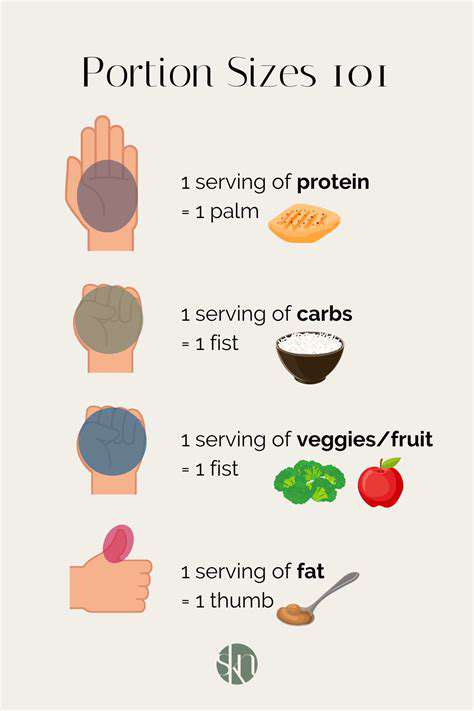How to Choose the Right Multivitamin for You

Reading the Label Carefully
Understanding the Importance of Label Reading
When selecting a multivitamin, carefully scrutinizing the label is paramount. It's not just about finding a product that looks appealing; it's about ensuring you're getting the nutrients you need and avoiding potential pitfalls. A thorough label review can reveal vital information about the ingredients, dosage, and potential interactions with other medications or health conditions. This proactive approach empowers you to make an informed decision, aligning the supplement with your specific needs.
The label serves as a crucial bridge between the product and the consumer. It's a concise summary of the product's composition, providing details about the amount of each nutrient, the form it's in, and any potential allergens. Taking the time to understand this information is critical to optimizing your supplement regimen and preventing unintended consequences.
Identifying Key Nutrients and Their Roles
Different vitamins and minerals play distinct roles in maintaining overall health. The label will detail the quantities of essential vitamins like A, C, and D, as well as crucial minerals like calcium and iron. Understanding the function of each nutrient within your body is vital to comprehending how a multivitamin can support your specific needs. For example, vitamin C is important for immune function, while calcium is essential for strong bones.
Pay close attention to the amounts and types of nutrients present. Some vitamins, like vitamin B12, are crucial for nerve function and red blood cell formation. Others, such as vitamin E, act as powerful antioxidants, protecting cells from damage. Understanding these roles allows you to tailor your supplement choices to address specific health concerns or maintain optimal well-being.
Analyzing Serving Size and Daily Dosage
A critical aspect of label analysis is understanding the serving size and the recommended daily dosage. The label should clearly indicate the amount of the product you need to consume to achieve the desired benefits. Consuming more than the recommended dosage can have detrimental effects on your health. This is crucial to avoid potential toxicity or other adverse reactions.
Pay close attention to the instructions provided on the label. Different products might have varying serving sizes and daily dosage recommendations. Following these instructions diligently is essential to ensure you're getting the most out of the supplement while minimizing risks. Carefully compare different products based on their serving sizes and dosages to choose the option that best suits your needs.
Evaluating the Form of Nutrients
The form of nutrients presented in the multivitamin can also significantly impact its effectiveness. Different forms of vitamins and minerals have varying levels of bioavailability, meaning the body's ability to absorb and utilize them. The label should specify the type of nutrient present. For instance, some multivitamins provide iron in a ferrous sulfate form, while others use a different form. Understanding the form is essential for optimizing absorption and effectiveness.
Considering Potential Allergens and Additives
When reviewing a multivitamin label, be sure to carefully check for any potential allergens or additives. Some individuals might have sensitivities or allergies to certain ingredients, and a multivitamin could unintentionally contain such substances. Carefully reviewing the list of ingredients can help identify any potential allergens or other substances you may need to avoid.
Additionally, pay attention to any added fillers or binders. These can sometimes contribute to digestive discomfort or other unwanted side effects. Choosing a multivitamin with minimal additives can be beneficial for optimizing your overall digestive health and preventing any potential issues.
Comparing Different Brands and Types
The market offers a wide variety of multivitamin brands and types, each with unique formulations and benefits. Comparing labels from different brands allows you to assess the specific nutrients offered and the quantities provided. This comparative analysis can help you find a multivitamin that best aligns with your individual nutritional needs and health goals. Comparing labels can help you find the best value for your money.
Reading labels critically can help you determine if the product meets your specific needs and preferences. Consider factors like the price, the quality of the ingredients, and the overall reputation of the brand when making your final decision.
Read more about How to Choose the Right Multivitamin for You
Hot Recommendations
-
*Guide to Managing Gout Through Diet
-
*Best Habits for Financial Well being
-
*How to Build a Routine for Better Mental Health
-
*How to Eat Healthy on a Budget [Tips & Meal Ideas]
-
*Guide to Practicing Self Acceptance
-
*How to Incorporate More Movement Into Your Day
-
*Guide to Managing Chronic Pain Naturally
-
*Guide to Building a Reading Habit for Well being
-
*Top 5 Weight Loss Supplements That Actually Work
-
*Best Exercises for Postpartum Recovery [Beyond Abdominal Work]
![Best Books on Mental Health and Well being [Recommended Reads]](/static/images/26/2025-05/CultivatingSelf-CompassionandPositiveSelf-Talk.jpg)










